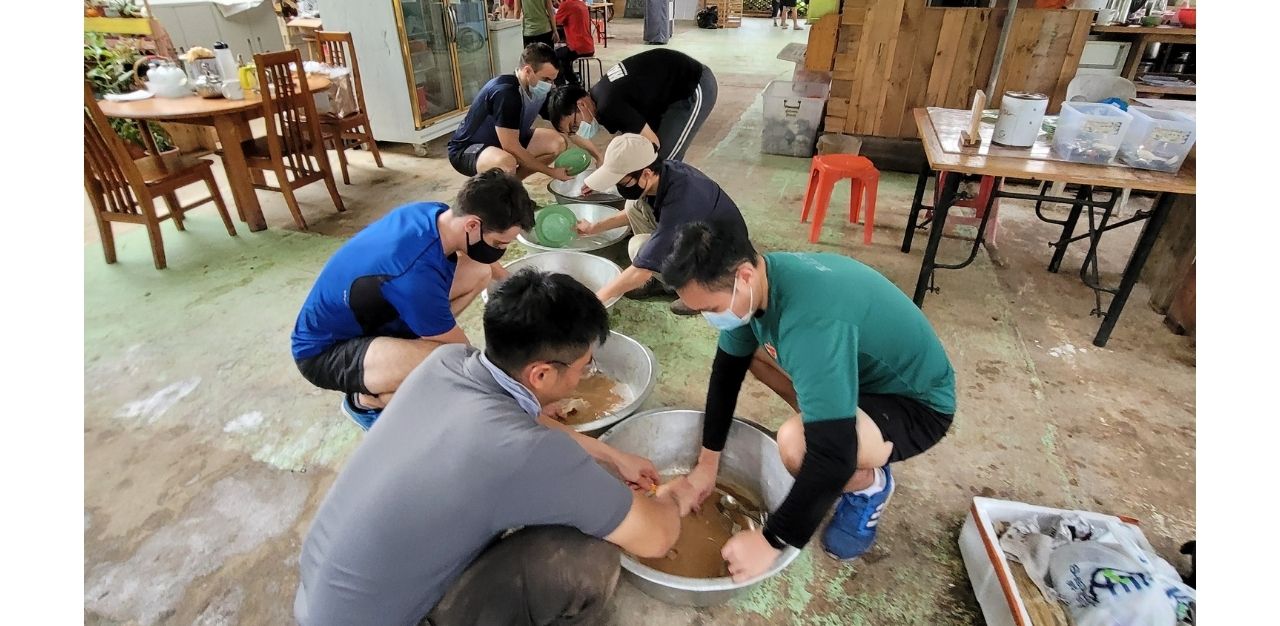During the 26th global Conference of Parties (COP26), TheHomeGround Asia shined the spotlight on a group of young environment avengers demanding greater climate action from Singapore leaders.
View this post on Instagram
Still sceptical, Instagram user @beny0ng, commented, “LOL. It will amount to nothing.”
Might he belong to the silent majority of sceptics?
In a March 2021 study published by Accenture and WWF and involving 500 participants, more than half of the respondents viewed the government as a trusted information source for achieving sustainable lifestyles.
In a separate study conducted by Kantar Public in October 2021, 2 in 5 of its respondents felt that there was no real need for them to change their personal habits.
This inertia runs deep — and what’s worse, it cannot simply be attributed to a single reason.
“I don’t find myself making a lot of changes, not because I’m not aware or that I don’t care,” says environmental studies graduate Linus Ng, 25. “It’s because I think the current lifestyle I’m living is already aligned with my beliefs.”
Some of the key things individuals can do to reduce their personal carbon footprint include taking less private transport, having a more plant-based diet, or even having one less child.
For Mr Ng, taking private transport is a rare occurrence and he is not a frequent flyer, so his transport emissions are minimal. Food, however, is an aspect of life he is more partial towards.
“For many Singaporeans, food would contribute to quite a lot of our emissions, because so much of our food is imported. But I’m not so eco-conscious when it comes to food,” he admits, saying that the carbon footprint of his meals — the meats he eats or where they are imported from — is much lower on his list of concerns as compared to other factors like price, taste, or nutritional value.
He cites the example of the choice between purchasing an Impossible cheeseburger at a premium versus a normal cheeseburger.
“The average customer wouldn’t have the full information on hand to make the perfect decision. Even if I asked the chef, or the boss of the F&B outlet, how much more sustainable it is by the numbers, I might not get a good answer. So personally, I’m likely to be sceptical and purchase the regular, cheaper option,” he adds
A Harvard Health blog article comparing nutritional levels among traditional beef burgers, Impossible burgers, and soy burgers showed that meatless burgers are more heavily processed and high in saturated fat.
Scepticism towards sustainability claims by the various businesses also plays a tangible role in deterring the likes of Mr Ng from patronising imitation meats like Beyond or Impossible Meats.
A third of consumers say that competing claims have confused them, while more than a fifth of Singaporean consumers claimed they do not trust business’ sustainability claims at all, according to the WWF study.
And consumers are right to be wary, considering that greenwashing becomes increasingly prevalent as more brands are blindly hopping onto the green bandwagon.
Birds of a feather
Social factors play a big role in making these lifestyle changes too, especially if they are going to be changes that last through time.
A core volunteer at back-to-basics “Kampong” collective Ground-Up Initiative (GUI) Neo Xiaoyun says that volunteers have been more amenable to going vegetarian after being exposed to the possibilities of little green steps.
“Seeing sustainable habits playing out at GUI presents itself as a new type of positive norm that volunteers might want to be a part of. For many of our volunteers, students, and corporate participants, their introduction to ideas of sustainable living at GUI serves as an informal conduit of environmental education and call to action for them to go green,” says Ms Neo.

But it seems peer pressure can be a bit of a wild card, depending on who one chooses to surround themselves with, as well as how one navigates these prevailing social norms.
Mr Ng, for example, has recently tried cutting down on emission-heavy red meats like beef — but if asked out by his friends to a steakhouse, he would find it weird to abstain from having a steak.
Others feel the converse pressure. When they are surrounded by “eco-warriors”, they are ridden with guilt when they so much as” dabao (takeaway) without BYOB — Bring Your Own (lunch)Box”, according to Ms Neo.
Working in sustainability, Mr Ng finds more of a reason to walk the talk. “Just being in the space and speaking to people in it, I find that it helps with being a more credible figure in my industry. But I still do what is manageable for me.”
He emphasises that guilt is not a good mechanism for convincing others or being convinced to make these changes — and tries not to let it be part of the equation for both himself and others.
“I think talking down to people only widens the divide and is only going to be counterproductive. In a funny way, sometimes people are quite okay with making these changes until someone guilts them into making them, then they don’t want to do it anymore,” he says.
Don’t sweat the little things
Ms Belle Koh, 23, finds it pertinent to recognise that some lifestyle changes undoubtedly have more impact than others.

She says that the reason why she first became a vegan during her junior college years stemmed from her feelings of helplessness and eco-anxiety. “Being a student who wasn’t working, I didn’t have access to any economic, political, or social positions of power. For lack of better ways to help, I became a vegan,” says Ms Koh.
She is not alone. According to Climate Conversations, a non-profit organisation that facilitates networks for climate action, 3 in 4 Singaporeans expect the climate breakdown to impact the availability of basic resources and their economy in the next 30 years, yet almost two-thirds feel like they cannot take any meaningful climate action.
Agreeing, Ms Neo adds that it’s important not to burn yourself out trying to be green. “You should not feel like you’re ‘sacrificing’, but rather, living in alignment with your values. Having a good relationship with yourself as you pick up these new habits is very important for sustaining them, since you’re likely to be going against the grain of society,” she says.
Ms Koh’s advice to those just starting out: Pick the little green steps that mean the most to you.
“Something that I did not stick with was plastic straws. For me, it felt like it was just a token act of support, and it didn’t mean much to me personally,” she says. “However, somebody else might say the same thing about veganism, but start out with a plastic-free journey and end up going on to spark much bigger movements.”
Demanding systemic change
Ms Koh points out that when one feels helpless despite being the poster girl or boy for climate action, it might be time to think bigger. After all, it is widely acknowledged among climate activists that individual actions do not account for much, and the onus falls largely on governments and corporations to commit to top-down changes.
Many Singaporeans are aware of this fact. In the study by Kantar Public, 2 in 5 Singaporeans surveyed felt there was no real need for them to change their personal habits, but over 4 in 5 said they would accept stricter environmental rules and regulations.
“People need to have options. If NTUC wants to sell me caixin in plastic packaging, even if I decline, the waste is already generated,” says Mr Ng.
“Similarly, if I want to purchase a more sustainably made laptop, but all the laptop manufacturers out there aren’t providing me the options, or offer these options at ridiculously expensive premiums, then what I can do is very limited,” he adds.
When government-imposed international standards dictate products to be manufactured at a minimum standard of eco-consciousness, consumers will conversely have no choice but to patronise them. With legislation, eco-friendly products will no longer come at “ironic and greenwash-y premiums either”, he points out.
This is not that there is no value in changing one’s lifestyle for the climate anymore. Ms Koh believes that butterfly effects ultimately originate from individual action.
“It’s a self-fulfilling prophecy. If you only value individual action by its direct impacts, then it’s going to be very hard for you to take it further, because you’ll be the person who chooses whether or not to take it further,” she says. “I believe in individual action, not just in the acts themselves, but in their potential to involve people in larger movements in future.”
In the second of TheHomeGround Asia’s three-part series on sustainable living, we discuss why young couples in Singapore are increasingly willing to forego children for the planet.
Join the conversations on TheHomeGround Asia’s Facebook and Instagram, and get the latest updates via Telegram.














